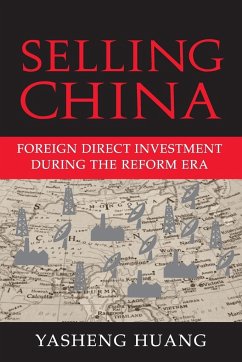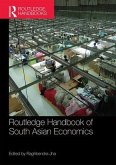In this book, Yasheng Huang makes a provocative claim: the large absorption of foreign direct investment (FDI) by China is a sign of some substantial weaknesses in the Chinese economy. The primary benefits associated with China's FDI inflows are concerned with the privatization functions supplied by foreign firms, venture capital provisions to credit-constrained private entrepreneurs, and promotion of interregional capital mobility. Huang argues that one should ask why domestic firms cannot supply the same functions. China's partial reforms, while successful in increasing the scope of the market, have so far failed to address many allocative inefficiencies in the Chinese economy.
'Professor Huang is fast becoming one of the most influential voices in the American academy on the subject of the Chinese economy. This is a book that will have a major impact on scholars and indeed on investors, and maybe even on China itself. It will surely change the way that contemporary Chinese political economy is studied and taught in universities.' William Kirby, Harvard University









